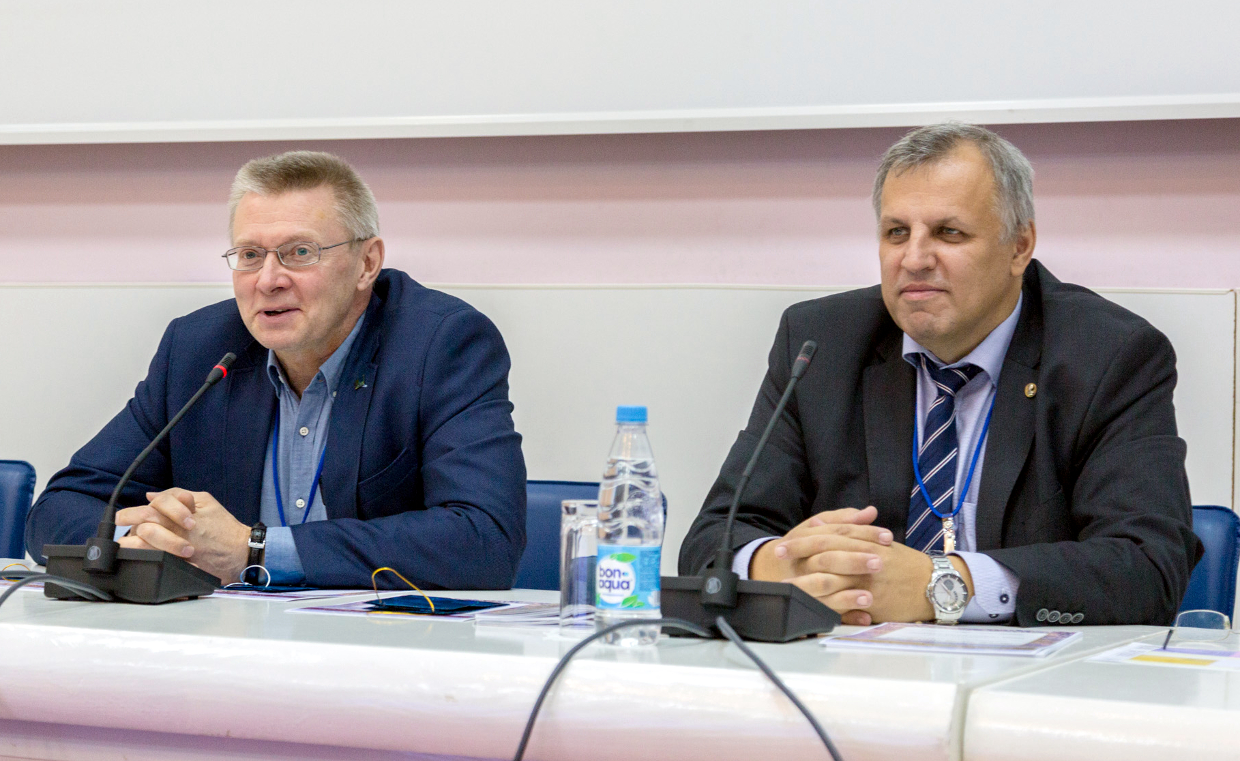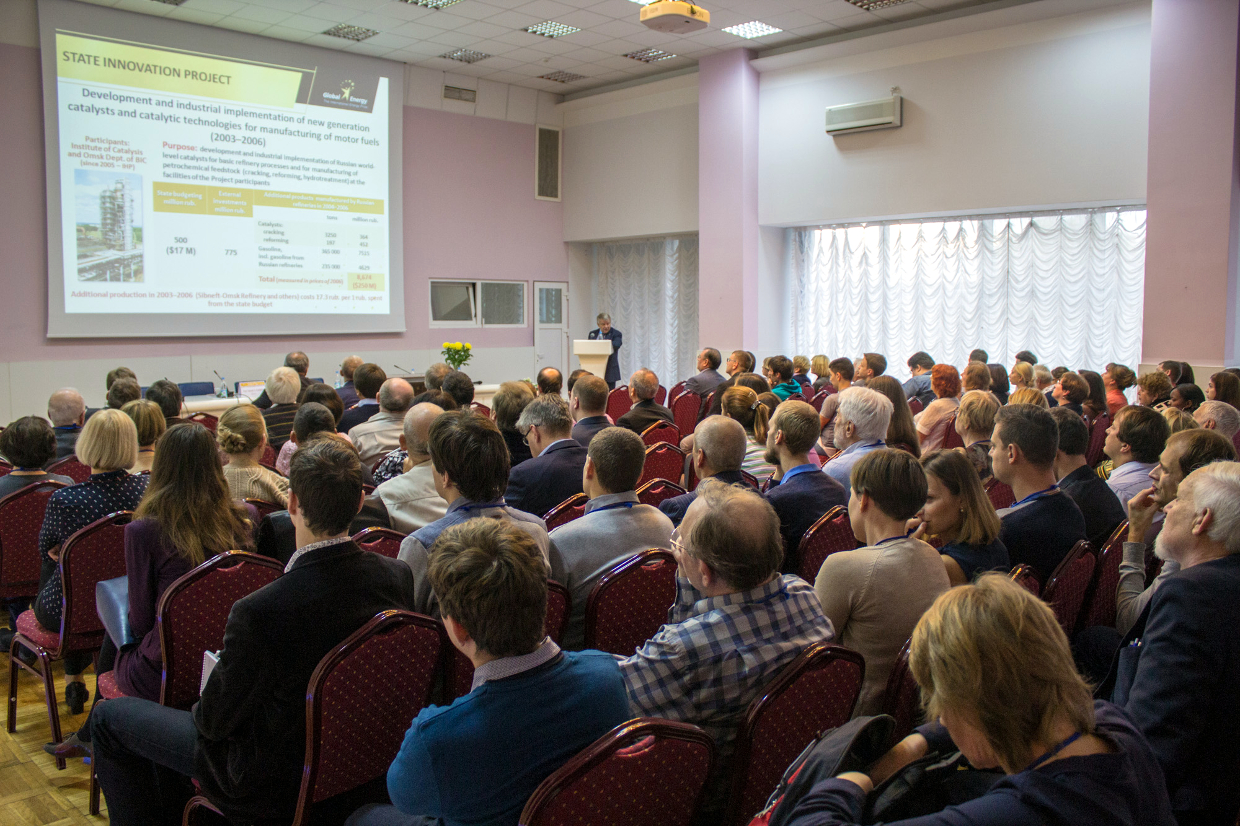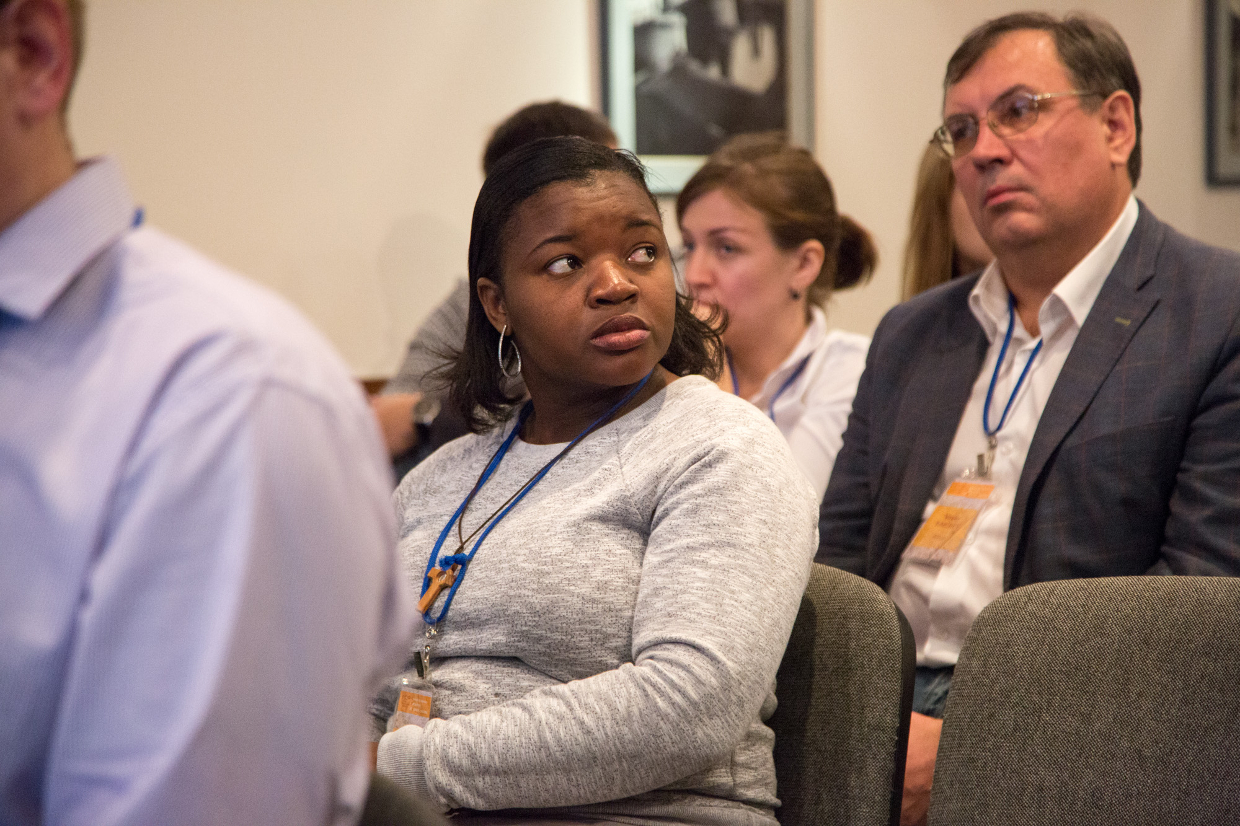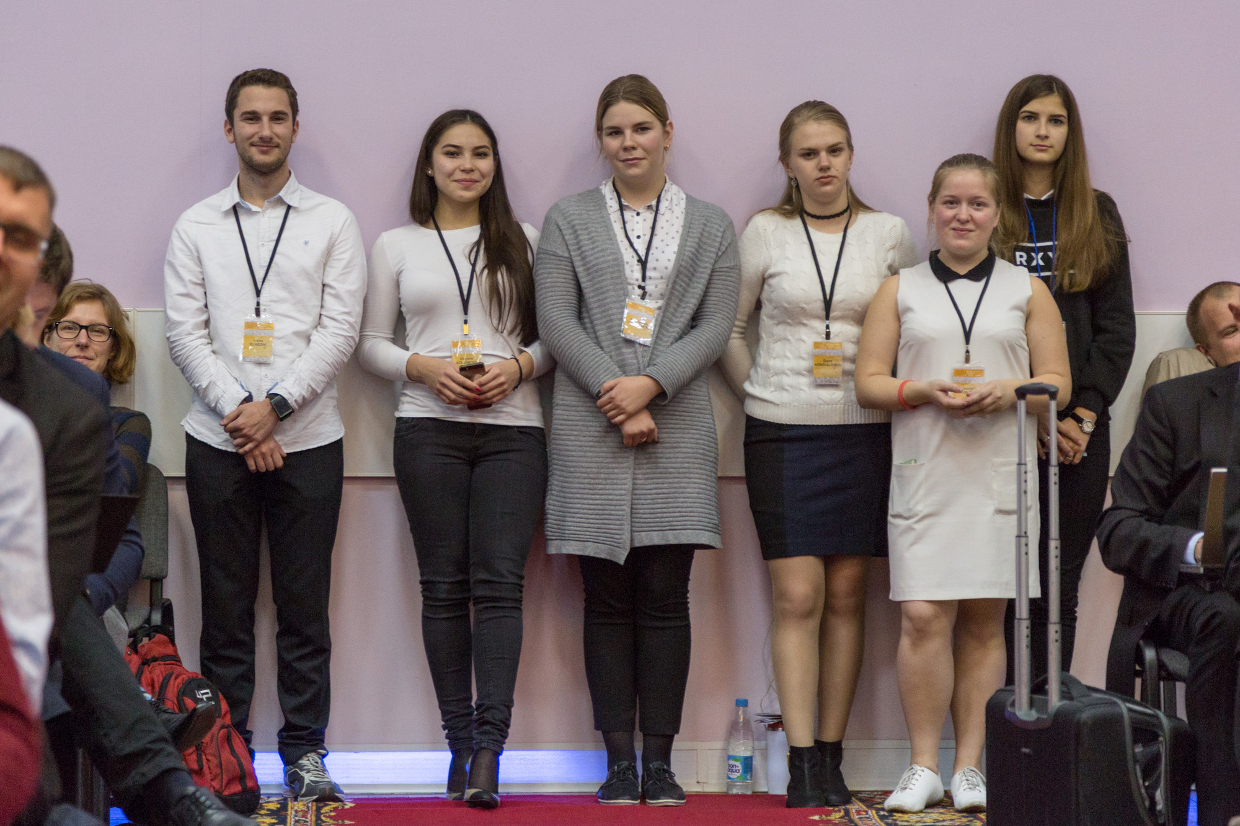
Boreskov Institute of Catalysis was founded in 1958 as a part of the Siberian Branch of the Russian Academy of Sciences. The founder and the first Director of the Institute till 1984 was academician Georgii Konstantinovich Boreskov.

One of the main activity areas of the Boreskov Institute of Catalysis is fundamental investigations in catalytic science to discover new principles of chemical reactions and to create innovative catalytic compositions and technologies.
Read more...

Boreskov Institute of Catalysis pays great attention to the training of young scientists. Each year more than 100 students and post-graduates are being trained at its research and educational facilities. The Institute collaborates with many educational organizations, including:
Read more...

For more than half a century, the Boreskov Institute of Catalysis is at a cutting edge of innovative R&D for chemical and petrochemical industries, energy power, environmental protection.
Read more...
11 October 2016
On October 2-6, the 10th International Conference “Mechanisms of Catalytic Reactions” took place in Svetlogorsk, Kaliningrad Region.
The program of the conference covered all study aspects of the mechanisms of heterogeneous and homogeneous reactions at atomic-molecular level with the up-to-date structural and spectral methods as well as quantum calculations.
The conference was held under the authority of European Federation of Catalytic Societies (EFCATS) and non-profit organization “National Catalytic Society”. The organizers were Boreskov Institute of Catalysis SB RAS and Kant Baltic Federal University cooperated with Federal Agency of Scientific Organizations, Lomonosov Moscow State University, Zelinsky Institute of Organic Chemistry RAS, Novosibirsk State University, and Mendeleev Chemical Society of Tatarstan Republic. As before, the Organizing Committee of the Conference was headed by Prof. Valerii Bukhtiyarov, director of BIC, corresponding member of RAS.

Member of Scientific Committee of the Conference Dr. Alexandr Stakheev, director deputy of IOC RAS (left), and Chair of the Organizing Committee Prof. Valerii Bukhtiyarov (right)
About 130 Russian and 30 international experts in the most promising fields of the world catalytic science from Western and Central Europe, USA, South Africa, Israel, and Japan presented the results of their studies at the Conference.
The scientific program included four plenary and nine key lectures, 72 oral and 89 poster presentations in the following research directions:
First-principles approach, theory and simulation in catalysis
Advanced methods for studies of mechanisms of catalyzed reactions
In-situ and operando studies of model and real catalysts
Kinetics and reaction intermediates of catalyzed processes
From mechanistic studies to design of advanced catalyst systems

Academician Valentin Parmon gives a plenary lecture
“In general, the level of the presentations was very high, - says V.I. Bukhtiyarov. – All participants noted very interesting plenary and key lectures. They also emphasized the progress in the topics which are considered to be the priority in European as well as the world catalysis.”
Within the frame of the Conference the School-Symposium of young scientists "Quantum-mechanical modeling of catalytic processes" took place with a contest for the best oral presentation. Three young scientists from Russia and Germany were awarded with the diplomas and money prizes.
The history of the Conference began in 1974 in the USSR. Then it had a status of an All-Union event, was held about once in four years and was the only conference in catalysis gathering the experts from all over the country, and not only those involved in basic research, but also those working in practical catalysis as well as engineers. After the collapse of the USSR the Conference was abandoned as many others. More than 10 years passed before Academicians Valentin Parmon (BIC SB RAS), Valeriy Lunin (MSU), and Vladimir Kazanskiy (IOC RAS) decided to revive the tradition. Since 2002, five conference were held in Moscow, St. Petersburg, Novosibirsk, and Svetlogorsk.
According to V. Bukhtiyarov, when it was decided to bring the Conference back to life in the early 2000s, there were attempts to change its status to international. However, the idea failed as the manufacturers were not interested in it, since the technologies were unavailable for the foreign public, and the Conference was divided into two events. One of them is the main Russian meeting for catalysis, Ruscatalysis Congress, where both fundamental and practical studies are presented. The other part is the International Conference “Mechanisms of Catalytic Reactions” focused on basic research. “Here we really see the fundamental aspects that have not reached the level of application, they are just being born. In this sense I believe it is very interesting to watch the direction of science of catalysis”, - says V.Bukhtiyarov.
In his words, this year the Conference had the air of the warm informal communication between the participants at all stages. “It was a very homely atmosphere, in spite of a large number of participants. The foreigners openly discussed not only the scientific problems but also the universal questions: how Russia develops, where it drives at. There is some propaganda abroad, and people believe that the sanctions in Russia led to famine. But when people come to us and see what is going on in reality, they understand it all right. Science has always been out of politics, even in the USSR, and now it is this bridge that connects not only scientists but just people.”

Participants of the Conference
This year one of the most western cities of Russia was chosen to host the Conference, Svetlogorsk of Kaliningrad Region. It has become a middle ground for the foreign and Russian participants: on the one hand, the Conference was held on the Russian territory, and on the other, it was the closest possible point to our partners abroad. “The fact that Kaliningrad and Svetlogorsk are the former German towns still preserving the old German architecture is also responsible for that we found ourselves between Russia and Europe. It created a special friendly air, very dear to all of us,” – added V.Bukhtiyarov.
In 2018, the Conference “Mechanisms of Catalytic Reactions” will be welcomed by one of the largest political, economical, cultural, and scientific cities in Russia, Kazan.

Volunteers of the Conference, the students of Baltic Federal University